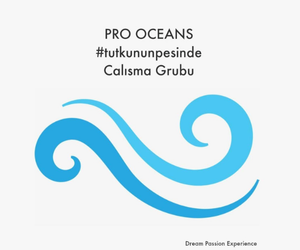After an unforgettable underwater adventure, your top priorities are probably getting a shower, grabbing something to eat, or lying down to rest. Yet, the importance of fully drying your diving gear after a dive is impossible to overstate. Failing to do so not only impacts your gear’s lifespan but also creates problems you might not have anticipated. From mildew growth to disruptive corrosion, ensuring every piece is completely dry is non-negotiable. Below, we’ll explore why drying matters and how it directly affects your investment, safety, and convenience.
Prevent Mold and Mildew Growth
Stashing away wet gear is a shortcut to dealing with mold and mildew. These invaders thrive in damp environments, particularly on neoprene, fabric, and rubber materials. Any lingering moisture becomes a breeding ground, leaving behind foul odors and stains that can be difficult to remove. Whether it’s your wet suit or BCD, drying eliminates the environment these nuisances need to take hold.
Hang your gear in a well-ventilated area, away from direct sunlight that could damage it. Patience now could save hours of future scrubbing. A dry suit isn’t just fresher; it ensures you don’t head for your next trip smelling like a basement.
Stop Corrosion and Rust
Not all damage to the gear is visible right away. Metal components like zippers, buckles, and tanks are particularly vulnerable to rust when exposed to continuous moisture. Saltwater exacerbates this, accelerating corrosion even after brief dives. This kind of damage isn’t just cosmetic but could render essential items unsafe for use.
A thorough rinse with fresh water is step one, but proper drying is just as critical. Wipe off residual water with a clean cloth, and prioritize air circulation. Investing in your gear’s long-term safety starts the moment you return from the water.
Avoid Wear and Tear on Gear Materials
Wet materials are weaker. Your wet suit, fins, and even masks face undue wear and tear when you fail to address lingering dampness. The elasticity, grip, and texture that make your gear functional can degrade over time without adequate drying.
Consider using hangers designed specifically for scuba gear to maintain shape and promote efficient drying. This minimizes stretching, cracking, and deterioration, giving you more dives out of every piece you own.
Enhance Your Safety Underwater
Drying your equipment isn’t just good maintenance; it’s a safety measure. Moisture trapped in regulators or BCD valves can lead to equipment malfunctions. Furthermore, integrity issues in the form of weakened seams or rusted D-rings may not appear until you’re mid-dive.
Spotting these concerns early starts with drying and inspecting your gear carefully. Practicing good care is about more than preserving what you own; it’s about keeping you safe in potentially life-threatening conditions.
Protect More Than Just the Gear Itself
Moisture doesn’t stay contained to your gear. By failing to fully dry your gear, you put the carrier, vessel, or vehicle you transport your gear in at risk. Vehicle wiring connections have various types of sealing to protect them, but the same can’t be said for every component. Fasteners, fabrics, and connection points are all at risk when you introduce saltwater to the equation. Fully drying your equipment keeps soggy surprises out of your commute.
Save Time Before Your Next Adventure
Packing wet gear for your next trip can create unnecessary delays. Equipment is harder to handle, heavier, and at risk of being unusable if improperly stored. Starting with dry gear reduces hassle during your prep, allowing you to focus on the experience ahead.
Drying also makes inventory checks simpler. When everything is ready to go at a glance, you’re less likely to arrive at your destination missing a crucial piece.
A Dry Finish Equals a Long Life
Maintaining your scuba gear may not be the most glamorous part of the sport, but it is essential. The importance of fully drying your diving gear goes beyond avoiding bad smells or saving a few bucks on replacements. It’s about ensuring safe, enjoyable dives every time you enter the water.
THE SCUBA NEWS Link !
DemirHindiSG 12 Ağustos 2025-20:06







